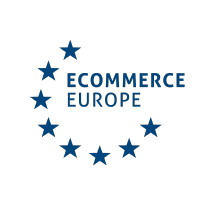Ecommerce Europe’s preliminary reaction to the Digital Services Act Proposal
Following the publication by the European Commission of its proposal for a Regulation on a Single Market for Digital Services and amending Directive 2000/31/EC, also known as the Digital Services Act (DSA), Ecommerce Europe’s Secretary General, Luca Cassetti, commented:
“Ecommerce Europe overall welcomes the publication of the European Commission’s DSA Proposal, although its provisions and their impact on the e-commerce sector require a more detailed and careful assessment by our members. While the e-Commerce Directive has been instrumental in setting up a digital infrastructure which enabled millions of digital retail businesses in the EU to grow and profit from a more harmonised Digital Single Market, we also recognised that the digital sector has significantly evolved, and that new and innovative digital services have emerged. We therefore welcome the Commission’s initiative to respond to new challenges that have arisen in the past two decades, such as the increased number of products coming into the Union from third countries.”
Ecommerce Europe flagged as one of the main challenges the allocation of responsibilities and obligations on product safety in case of products offered on online marketplaces by professional sellers that are based outside the EU. In the proposal, the Commission introduces an obligation, similar to the Market Surveillance Regulation, that providers of intermediary services established in a third country that offer services in the Union should designate a legal representative in the EU, to allow for effective oversight and, where necessary, enforcement of this Regulation in relation to those providers. Although Ecommerce Europe still needs to assess the implications of such an obligation, the proposal to introduce the concept of a legal representative for a non-EU-based intermediary service provider may be a solution. Nevertheless, Ecommerce Europe would like to stress that there could also be other approaches worth considering.
From a more general perspective, Ecommerce Europe appreciates and overall supports the Commission’s focus on fostering EU harmonisation, to tackle the issue of legal fragmentation, for instance on notice and action mechanisms, and on strengthening enforcement, although the details of these provisions still need to be carefully assessed. Furthermore, Ecommerce Europe welcomes that the country of origin principle has been maintained, since this fundamental principle has been providing legal certainty to businesses operating cross-border in the EU, relieving some burden for SME businesses and helping them in expanding on a European scale.
It has to be noted that the DSA Proposal also introduces several other concepts and elements that require careful further analysis by Ecommerce Europe and its members before providing a detailed response, such as penalties/fines, specific obligations for very large platforms, trusted flaggers, the Digital Services Coordinators, the European Board for Digital Services, and more.
Ecommerce Europe will consult its members with regards to the DSA Proposal, as well as on the Digital Markets Act, and is committed to constructively cooperate and support policymakers in their negotiations on these important proposals.
Ecommerce Europe’s position paper on DSA (September 2020) can be found here. An update of the DSA paper will follow in due time, as well as a new paper on the DMA proposal.
Über den Ecommerce Europe
Ecommerce Europe is the sole voice of the European Digital Commerce sector. As a result of joining forces with EMOTA, Ecommerce Europe now represents, via its 25 national associations, more than 100,000 companies selling goods and services online to consumers in Europe. Ecommerce Europe acts at European level to help legislators create a better framework for online merchants, so that their sales can grow further.

